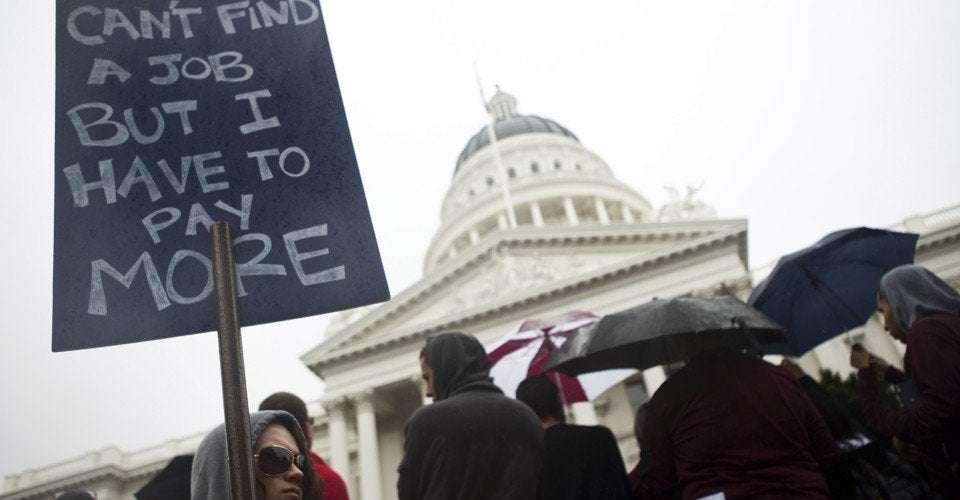Kids of the 1980s and 1990s have had a new, huge, financially catastrophic demand on their meager post-recession earnings, too: a trillion dollars of educational debt. About a quarter of Gen Xers who went to college took out loans to do so, compared with half of Millennials. And Millennials ended up taking out double the amount that Gen Xers did. No wonder, given that the cost of tuition has gone up more than 100 percent since 2001, even after accounting for inflation.
The toxic combination of lower earnings and higher student-loan balances—combined with tight credit in the recovery years—has led to Millennials getting shut out of the housing market, and thus losing a seminal way to build wealth. The generation’s homeownership rate is a full 8 percentage points lower than that of the Gen Xers or the Baby Boomers when they were the same age; the median age of home-buyers has risen all the way to 46, the oldest it has been since the National Association of Realtors started keeping records four decades ago.
Read: How WeWork has perfectly captured the Millennial id
As a result, Millennials have not benefited from the dramatic rebound in housing prices that has occurred since the financial collapse and the foreclosure crisis. Millennials have also been forced to shell out hundreds of billions of dollars in rent as housing costs have skyrocketed in many urban areas. This represents a large generational transfer of wealth from the young to the old. Boomers own the houses and bar municipalities from building more of them, thus benefiting from rising prices and soaking up endless rent checks forked over by younger and poorer families.
Cost pressures have also made it difficult or impossible for Millennials to save or invest. The share of Americans under the age of 35 who own stocks has meandered down from 55 percent in 2001 to 37 percent in 2018, in part because employers are less likely to offer retirement-savings plans and in part because Millennials have nothing left over at the end of the month to put away. Virtually all members of the cohort are “not saving adequately,” experts warn, and two-thirds of Millennials have zero retirement savings. This means that Millennials have benefited not a bit from the decade-long boom in stock prices, as their parents and grandparents have.
Millennials are worth less on paper than members of older generations are, and are worth less on paper than members of older generations were at the same point in their lives. The net worth of your average Millennial household is 40 percent lower than for Gen X households in 2001 and 20 percent lower than for Baby Boomers’ households at the end of the 1980s.
Read: The myth of the Millennial entrepreneur
Could the Millennials make up this lost ground? Perhaps, if wage growth suddenly and dramatically accelerates, urban cores start to build millions of new homes, and Congress announces a student-loan debt jubilee. But financial experts consider it unlikely. Millennials missed out on the big asset boom that occurred between 2010 and the present, and “appreciation is unlikely to be as rapid in the near future as it was during the recent period,” argue economists at the Federal Reserve. “With the baby boomers occupying most of the top jobs and much of the housing, Millennials are doing less well than their parents,” concluded Credit Suisse. “We expect only a minority of high achievers and those in high-demand sectors such as technology or finance to effectively overcome the ‘millennial disadvantage.’”

juken7 on August 30th, 2019 at 05:14 UTC »
Can't destroy this Millennial! Already homeless in debt (also "collections") and unemployed.
haneybd87 on August 30th, 2019 at 04:25 UTC »
Well this was a great thing to read before I go to bed.
solar-cabin on August 29th, 2019 at 22:48 UTC »
" Kids of the 1980s and 1990s have had a new, huge, financially catastrophic demand on their meager post-recession earnings, too: a trillion dollars of educational debt. About a quarter of Gen Xers who went to college took out loans to do so, compared with half of Millennials. And Millennials ended up taking out double the amount that Gen Xers did. No wonder, given that the cost of tuition has gone up more than 100 percent since 2001, even after accounting for inflation.
The toxic combination of lower earnings and higher student-loan balances—combined with tight credit in the recovery years—has led to Millennials getting shut out of the housing market, and thus losing a seminal way to build wealth. The generation’s homeownership rate is a full 8 percentage points lower than that of the Gen Xers or the Baby Boomers when they were the same age; the median age of home-buyers has risen all the way to 46, the oldest it has been since the National Association of Realtors started keeping records four decades ago."